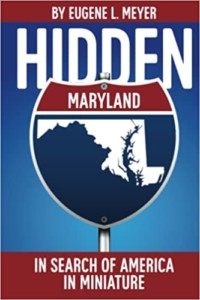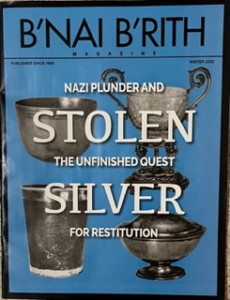Paid death notices – a shrinking newspaper’s new profit center.
“Hello, Sweetheart, get me obits!” was the headline on a blog I posted on June 10, 2020, as the country’s death toll from Civid-19 had reached a then shocking 115,017.
Indeed, for a time, the Washington Post obituaries included many local lives, not just the national and international luminaries who had passed on. “And lengthy obituaries, even of local figures,” I wrote, “have re-emerged in the Washington Post’s Metro section, where brief obits labeled ‘community deaths,’ once consigned to the web site, now also may appear in print.”
Nearly three years later, that is no longer so. The Post’s posthumous “biographies” are now almost exclusively reserved for the persons of interest well beyond the print paper’s circulation area. The newspaper, as executive editor Sally Buzzbee said in killing the Sunday magazine, is undergoing a “global and digital transformation.”
The late magazine was also a place for local “lives lived,” a feature of the year end issue. I had the honor of writing a few a dozen years ago. One was about a woman whose earliest memory was of a devastating 1904 earthquake in her hometown in Italy. I recently received an email from a relative seeking more information that could update and expand the family tree. The subject had died, but her obituary lived on, in this one family. The obit, as we say, has legs.
The demise, if you will, of the local obit in the Washington Post has been a subject lately discussed on our “partums” list-serv. Its members are former WP newsroom folks who use the platform to share information about benefits, job opportunities, and occasionally gripes about the institution we loved and worked for during its “golden era” under the Grahams. Now, under Amazon gazillionaire Jeff Bezos, lauded for his “deep pockets” when he purchased the paper in 2013, the Post seems to be the incredible shrinking “legacy” news product.
Not just the magazine but also travel, Outlook, real estate, stock tables and more are all gone or allegedly subsumed somewhere (but try to find them). Date Lab? No more matchmaking. Second Glance? See if you can find 12 changes in the print newspaper. Newsroom staffers have been told to expect more layoffs soon, as many as 100, and the latest rumor is that Bezos plans to sell the paper in order to purchase the Commanders, Washington’s beleaguered NFL team.
You may have noticed another change if you are among the dwindling number of print subscribers. Home delivery has been eliminated in many areas. The Post is offering mail delivery instead, ensuring that subscribers are getting not “news” but already “published” major (and minor) stories, columns and editorials that have hours ago appeared online. I get it: We may be the only household in our block of 40 or so homes to have the print paper still delivered daily.
Another casualty of the digital revolution accelerated by the pandemic and online buying has been print advertising, both classified and display ads. What we call “house ads” seem to fill much of the empty spaces in the daily paper. When I joined the Post in 1970, new reporters routinely wrote obits, not just of the departed famous but shorter ones for local residents. Confirming a death by calling the funeral home was on-the-job training. These days, even those two-paragraph local obits of note are apparently not noteworthy.
But have you noticed? Paid death notices are booming, filling the back pages in the Metro section and costing customers as much as $2,000 each for a little bio and photograph. It seems rather ghoulish, one of my retired former colleagues commented, that these celebratory chronicles of the locally deceased are now one of the paper’s few “profit centers.” So, if you want to support local journalism, don’t just subscribe, or click online. Buy a death notice!
And now the news!
Amazon is now offering a 15% discount on my new book Hidden Maryland: In Search of America in Miniature. So instead of $34.95, the price is $29.61. The book is in stock, earns points on Prime and Amazon promises delivery in two days. This is a book of “undertold stories,” Washingtonian magazine says in its January Capital Comment column, and offers “a fun look at Maryland’s quirkier corners.” To order, click here.
A few weeks ago, I gave a Zoom presentation on Hidden Maryland for Montgomery County’s History Conversations. On Thursday, March 16, I will be in person at the Potomac Community Village speaking about the book, how it came about and what it revealed about the lesser known corners of our state. It’s free for all at the Potomac Community Center’s Community Room at 11315 Falls Road.

The winter issue of B’nai B’rith Magazine, which I am proud to edit, hit the news stands (not literally), the internet and the homes of our traditional mail subscribers with a stunning cover story that is getting a lot of buzz. It is “Stolen Silver: Nazi Plunder and the Unfinished Quest for Restitution.” Recently, I discussed the cover story and the issue on YouTube with B’nai B’rith CEO Dan Mariaschin and the article’s author Dina Gold, whose book Stolen Legacy told the story of her own family’s Berlin property seized by the Nazis and her years long fight for restitution. To watch the discussion on YouTube, please click here.

Happily added a link to this piece here:
Obituaries and other forms of tribute
https://www.comfortdying.com/obituaries_and_other_forms_of_tribute_64468.htm
I wonder how accurate most paid death notices are and if they are more or less accurate than researched and reported obits.
Great piece, Gene. Those were the days. I agree with Pat McNee’s assessment, wondering about the accuracy of the paid obits.
As one who reads online, I was not aware that so many vital sections of the Post had been eliminated. I knew about Date Lab. I read the last one online
In any event, as usual, your posting was very informative and interesting. Thanks.
Gene;
You may have written the obit for the Post.
Ken